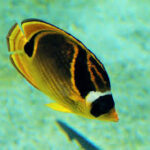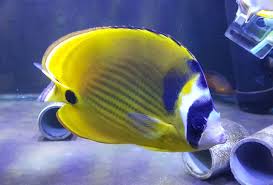
In Chinese culture, gift-giving is an important part of celebrating festivals, offering a chance to express goodwill, respect, and appreciation for loved ones. However, the act of giving gifts is not merely about the gesture—it is also deeply rooted in the principles of Feng Shui, which is the ancient Chinese art of creating harmony and balance in one’s environment. In the context of gift-giving, Feng Shui influences the selection, presentation, and timing of the gift to ensure that positive energy (chi) flows freely, bringing good fortune and prosperity to both the giver and the receiver.
Chinese festivals, such as the Chinese New Year, Mid-Autumn Festival, and Dragon Boat Festival, are key occasions for gift exchanges. This article explores how to give gifts according to Feng Shui principles during these important celebrations, ensuring that the gifts are not only meaningful but also auspicious for the recipients.
Understanding Feng Shui and Its Influence on Gift Giving
Feng Shui, which translates to “wind and water,” is based on the belief that the energy flow in a given space can greatly influence one’s life. In gift-giving, this philosophy suggests that the objects exchanged should carry positive energy, represent harmony, and avoid any negativity. According to Feng Shui, the gifts chosen and how they are presented should be in alignment with certain elements, colors, and symbols that promote luck, health, and prosperity.
Key Feng Shui principles to consider in gift-giving include:
- Chi (Energy Flow): Gifts should encourage the flow of positive energy. Avoid items that may create stagnation or block the flow of good energy.
- Balance of the Elements: Feng Shui relies on five elements—wood, fire, earth, metal, and water—and each has a corresponding energy. Choosing gifts that balance these elements can enhance their positive impact.
- Symbolism: In Chinese culture, the symbolism of a gift plays a crucial role. Certain items represent specific qualities, such as longevity, happiness, or wealth, which can significantly impact the recipient’s life.
Chinese Festivals and Their Gift-Giving Traditions
Chinese New Year
Chinese New Year, also known as the Spring Festival, is the most significant festival in Chinese culture. It marks the beginning of the lunar new year and is a time for family reunions, feasts, and celebrating new beginnings. During this time, gift-giving is an essential tradition, as it is believed to bring good luck and drive away negative energy.
Key Feng Shui Tips for Chinese New Year Gift Giving:
- Red Envelopes (Hongbao): One of the most iconic gifts during Chinese New Year is the red envelope (hongbao), which contains money. The red color is auspicious in Feng Shui because it symbolizes good fortune, happiness, and protection against evil spirits. When giving a red envelope, it is important to choose an amount of money that is not overly small (such as a single digit) or too large, as it could imply a lack of balance.
- Feng Shui Tip: Choose even numbers when giving money, as they are seen as more auspicious. The number eight, for instance, is considered extremely lucky because it sounds like the word for “wealth” in Chinese.
- Fruit and Food Gifts: In Feng Shui, food and fruit gifts carry strong symbolism. Oranges and tangerines, for example, are often given during Chinese New Year as they represent wealth and prosperity due to their round shape and golden color. Other auspicious fruits like pomegranates (symbolizing fertility and good fortune) and apples (symbolizing peace) can also be gifted.
- Feng Shui Tip: Avoid gifting pears, as the word for pear in Chinese sounds similar to the word for “separation,” which is considered inauspicious during festive celebrations.
- Flowers and Plants: Lucky bamboo, peonies, and orchids are excellent gifts for Chinese New Year. These plants are believed to attract good fortune, wealth, and health. In Feng Shui, the number of stems in a bouquet also carries significance. For example, five stems of bamboo are thought to bring abundance and prosperity.
- Feng Shui Tip: Never gift white flowers during Chinese New Year as they are often associated with funerals and death.
Mid-Autumn Festival
The Mid-Autumn Festival, or Moon Festival, is celebrated on the 15th day of the 8th month of the lunar calendar, typically in September or October. The festival celebrates the harvest and the full moon, symbolizing unity, prosperity, and family togetherness. The giving of moon cakes is a key tradition during this time.
Key Feng Shui Tips for Mid-Autumn Festival Gift Giving:
- Moon Cakes: Moon cakes are the quintessential gift for the Mid-Autumn Festival, symbolizing completeness, unity, and the reunion of families. The round shape of the moon cake represents the full moon and family harmony. It is important to choose moon cakes with quality ingredients and elegant packaging to ensure the gift’s positive energy.
- Feng Shui Tip: When gifting moon cakes, make sure to present them with round packaging, as it signifies wholeness and completeness.
- Teas and Teapots: Tea is another popular gift during the Mid-Autumn Festival, especially premium varieties such as Oolong or Jasmine tea. In Feng Shui, tea represents calmness, peace, and tranquility, making it a thoughtful and auspicious gift. A well-chosen teapot or tea set is also a great gift as it is seen as a symbol of hospitality and warmth.
- Feng Shui Tip: A red teapot or a golden tea set is particularly lucky, as the colors red and gold are both strongly associated with prosperity and good fortune.
Dragon Boat Festival
The Dragon Boat Festival, celebrated on the 5th day of the 5th month of the lunar calendar, is another important Chinese festival. It honors the life and legacy of the ancient poet Qu Yuan and is celebrated with dragon boat races and the eating of zongzi (rice dumplings wrapped in bamboo leaves).
Key Feng Shui Tips for Dragon Boat Festival Gift Giving:
- Zongzi (Rice Dumplings): Zongzi are a traditional gift during the Dragon Boat Festival. They are often filled with sweet or savory fillings and wrapped in leaves. Gifting zongzi represents sharing the harvest and wishing the recipient good health and prosperity.
- Feng Shui Tip: It is important to gift zongzi in green or bamboo wrappings, as bamboo symbolizes strength and resilience in Feng Shui.
- Health and Wellness Gifts: The Dragon Boat Festival occurs during the summer, and gifts related to health and wellness are ideal during this time. Herbal remedies, ginseng, or ginkgo biloba are excellent choices, as they are associated with vitality and longevity in Chinese culture.
- Feng Shui Tip: Choose gifts that encourage health and vitality, such as green tea or items symbolizing longevity, to enhance the positive energy flow.
General Feng Shui Guidelines for Gift Giving
In addition to the specific festivals, there are general Feng Shui principles to consider when selecting gifts:
- Avoid Sharp Objects: Sharp objects like knives or scissors are considered to bring bad luck as they can “cut” relationships and bring negative energy. If you must give such items, make sure to give a small token in return (such as a coin) to “buy back” the sharp object and turn the energy around.
- Present Gifts with Both Hands: When giving a gift, present it with both hands to show respect and ensure the flow of positive energy. This small gesture enhances the gesture of goodwill and prosperity.
- Personalized Gifts: While Feng Shui emphasizes symbolism, personalized gifts can add a special touch. Make sure the gift aligns with the recipient’s personality and preferences, ensuring it holds positive significance for them.
- Color Choices: Colors play a significant role in Feng Shui. Red is universally considered lucky, while gold symbolizes wealth and success. Avoid using black or white in the gift wrapping or presentation, as these colors can evoke sadness and negativity.
Conclusion
Gift-giving during Chinese festivals is not only a social gesture but also a deeply symbolic act that holds great meaning in Chinese culture. By following Feng Shui principles, you can ensure that your gifts bring good fortune, prosperity, and harmony to both the giver and the receiver. From red envelopes during Chinese New Year to moon cakes during the Mid-Autumn Festival, every gift exchanged is imbued with positive energy, making these celebrations even more special.
When choosing a gift, consider the Feng Shui elements, colors, and symbols that resonate most positively with the recipient’s energy and the occasion. By doing so, you will help foster an environment of abundance, joy, and connection, ensuring that your gift-giving practices align with the timeless wisdom of Feng Shui.










